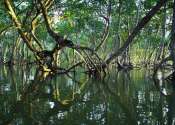Steelhead trout, once thriving in Southern California, are declared endangered
Southern California's rivers and creeks once teemed with large, silvery fish that arrived from the ocean and swam upstream to spawn. But today, these fish are seldom seen.









